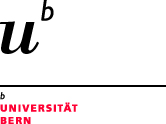The clinical-practical exams known as “OSCE” (Objective Structured Clinical Exam) have been incorporated into medical studies for many years. The examinees interact one after the other with multiple models in a circuit of stations in order to demonstrate the skills and competencies of medical practice (“clinical skills”). Trained, clinically active examiners assess the candidate performance.
Since August 1, 2018, the University of Bern has offered 100 additional places to study human medicine per year. As a result, the summative OSCE, which had previously been carried out in two parts during the medical course, was reformed and will now only be carried out at the end of the spring semester.
To complement this, a formative, i.e. mock OSCE event will be held at the end of the autumn or fall semester. This formative OSCE, which was carried out for the first time in January 2020, povides the 3rd year students with an additional opportunity to practice previously learned “Clinical Skills” (CST) and to become familiar with the OSCE format.
Together with the Bern Institute for Family Medicine and specialists from internal medicine, surgery, paediatrics, gynaecology, ear, nose and throat medicine, ophthalmology and psychiatry, 12 cases based on the CST modules were developed (for 12 stations). Depending on the CST learning units already completed, 3rd year students were able to complete these 12 cases during the formative OSCE.
-
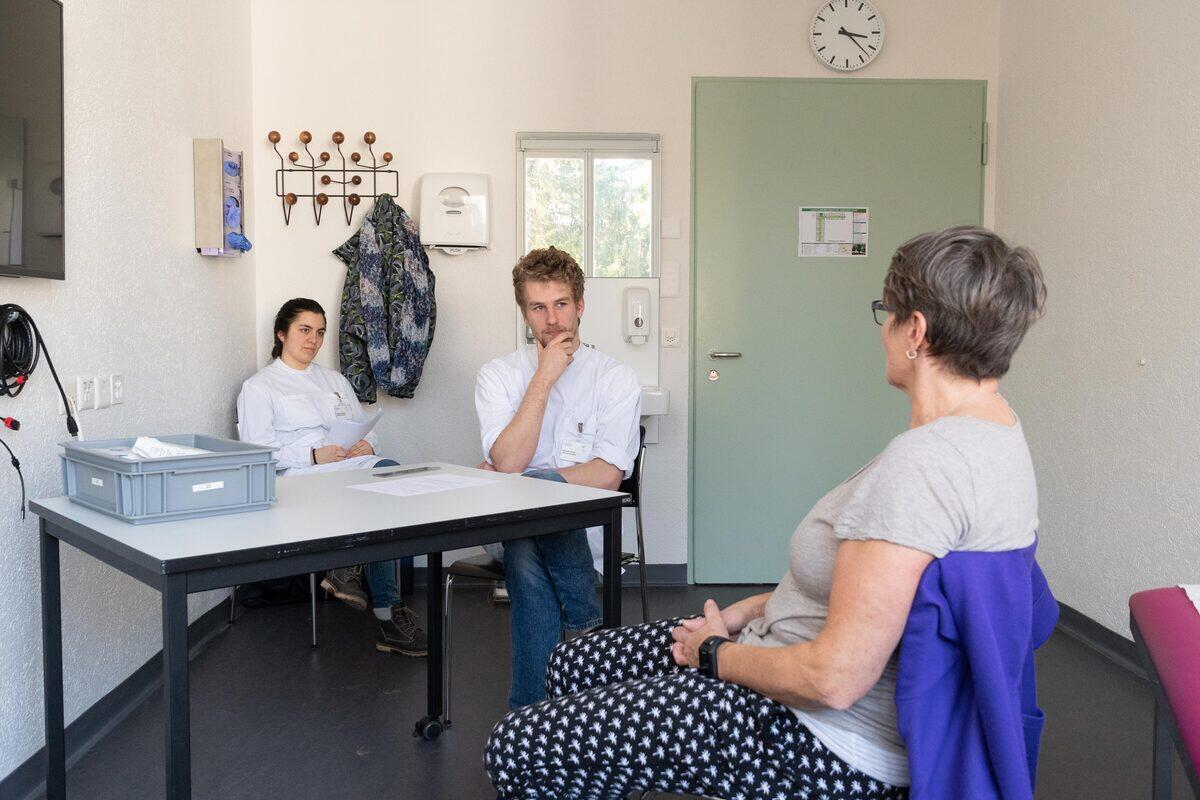
An OSCE candidate (3rd year of study) concentratedly taking the medical history from the simulation patient. The fellow student is watching in the background. -
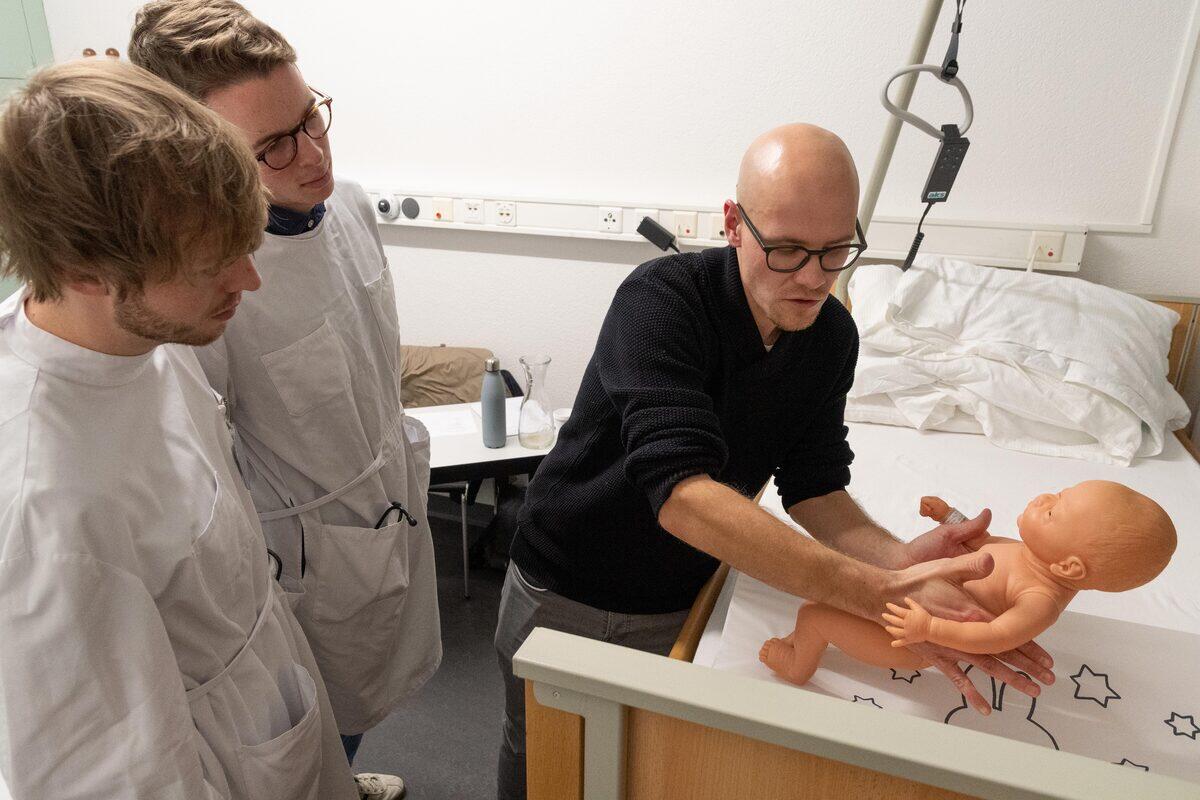
The peer expert (5th year) providing active feedback. -
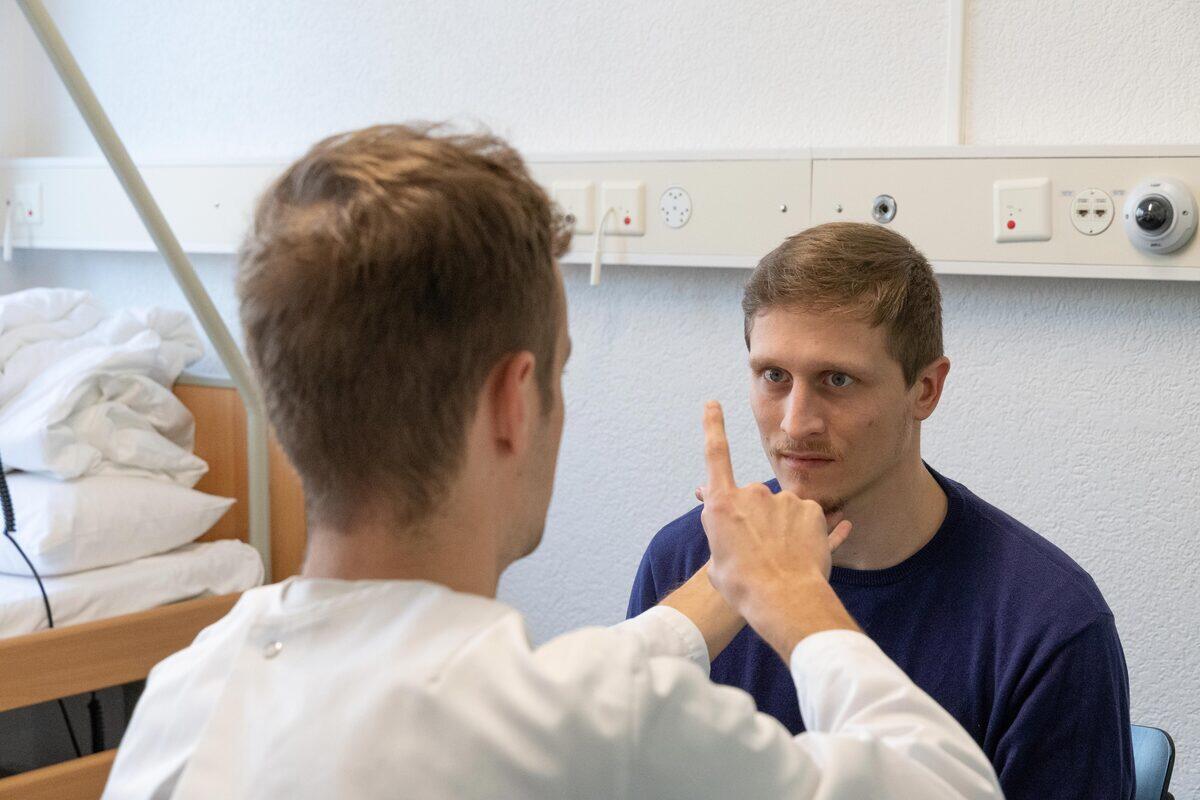
Examination of the cranial nerves. -
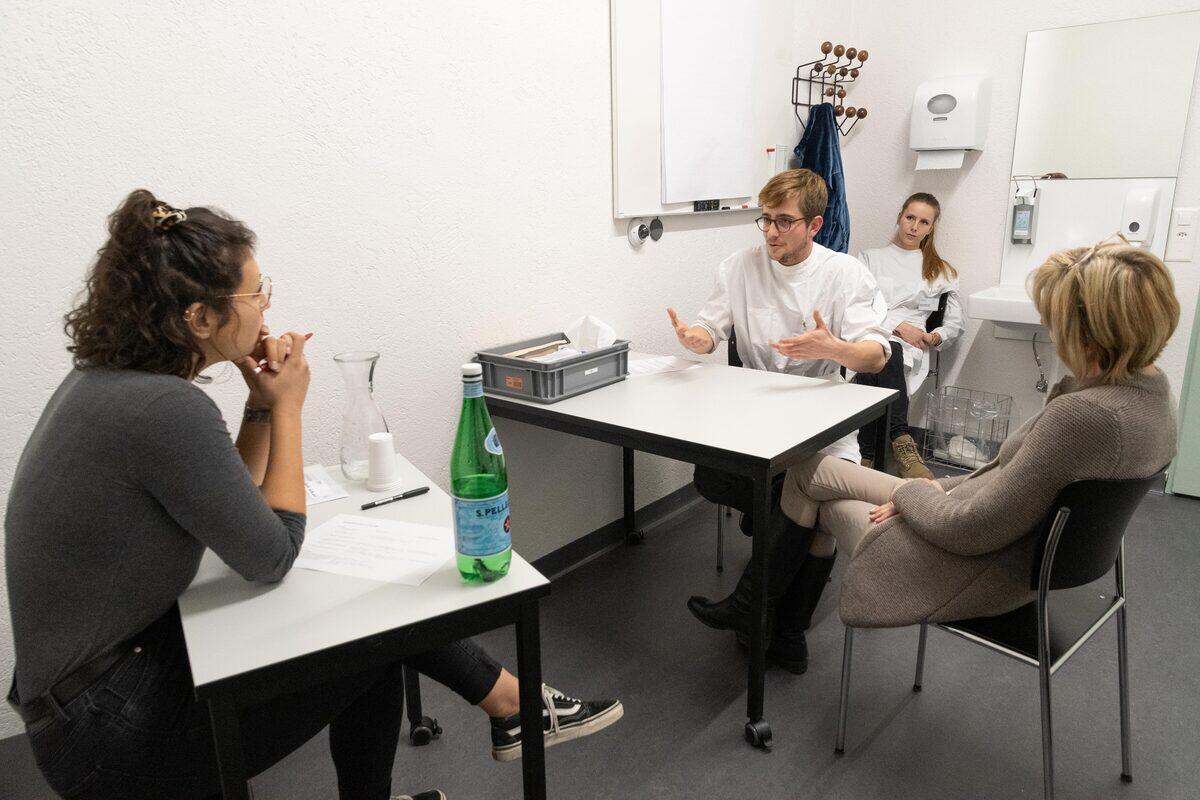
The candidates (centre) not only receive feedback, they can also ask questions and benefit from the specialist knowledge of the peer experts (left). -
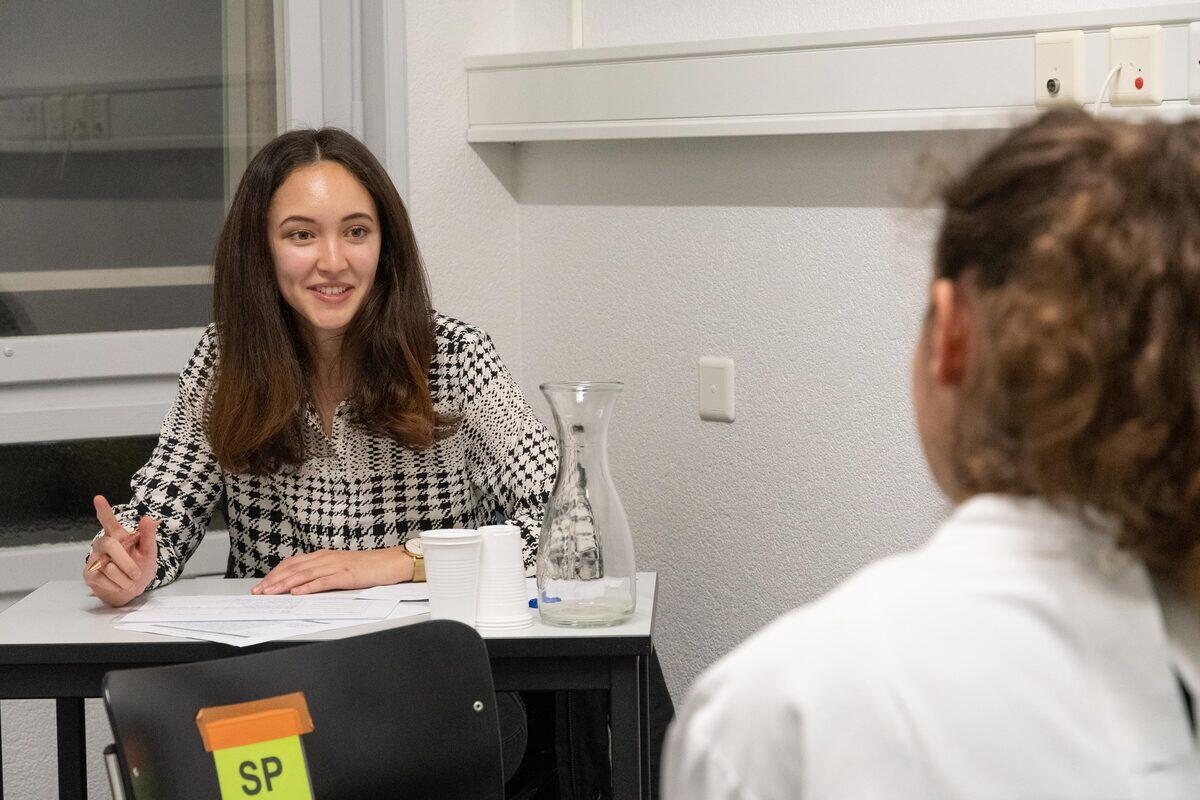
Not only the candidates benefit from the feedback from the peer experts. The experts also profit from this new / unfamiliar role and the associated practice effect. -
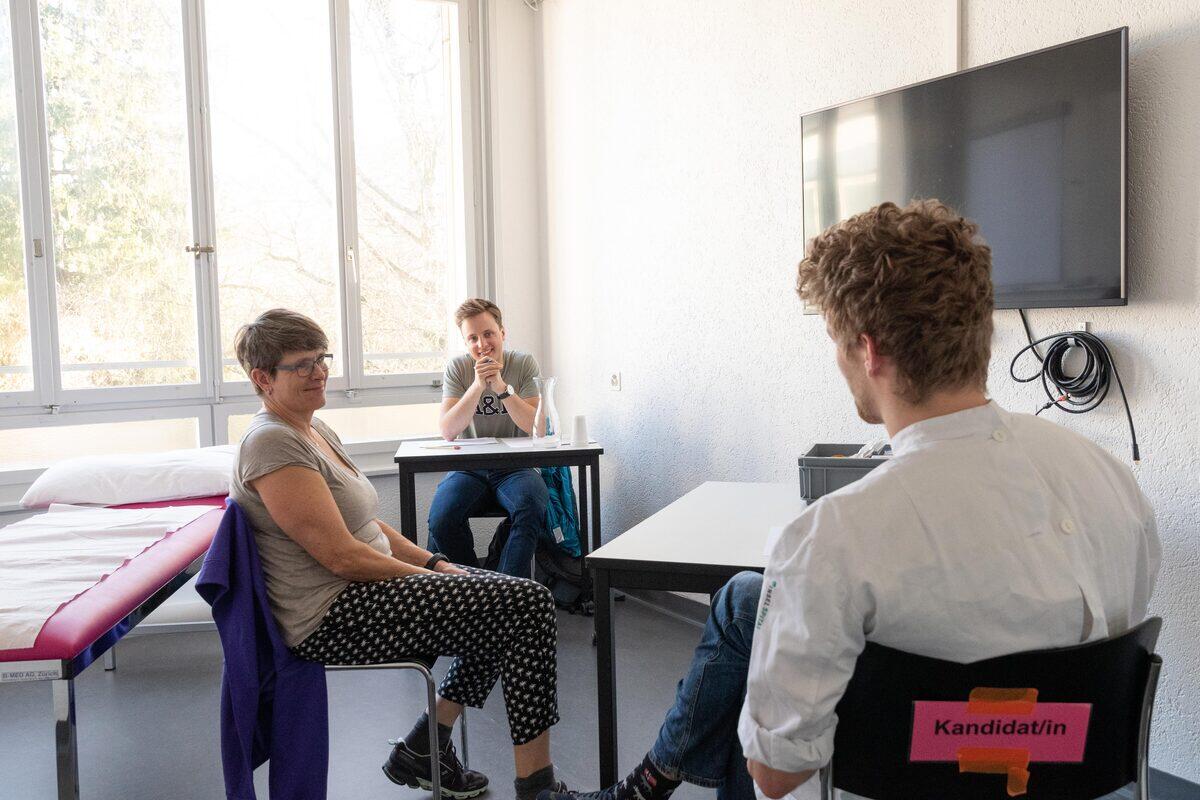
Although the event was held under “examination conditions”, the atmosphere was relaxed.
Optimized learning
Students from the 5th year ("peer experts") were employed as examiners for the first time. They received payment in this role and had been trained by the clinically active experts in specific desciplines for the respective examination content. The approximately 50 participating students were recruited on a “first come, first served” basis via an announcement on the Learning Management System (LMS) Ilias.
The peer tutors received training in the correct feedback technique (positive and constructive) from experts from the AUM / IML.
Since this formative OSCE had the primary goal of optimising the learning for the examinees, the 3rd year students received direct and specific feedback about their performance and constructive improvement tips from the more experienced 5th year students after each station.
Predominantly positive feedback
An online survey was carried out after the formative OSCE. With a response rate of 40%, the 3rd year students rated the formative OSCE either as "very useful" (85%) or "useful" (15%).
In particular, the additional practice opportunity in a situation mimicing the exam, the oral and written feedback from the peer experts and the performance of the SP were highlighted as positive.
The almost 50 deployed peer experts also expressed mostly positive comments on the formative OSCE. For example, they found it helpful to have the opportunity to take on the role of the examiner and not just to take part in an OSCE as a candidate. They also noticed the general behaviour of the examinees (especially their communication with the SPs and with themselves as the examiners), from which they also learned for their own future exams.
The examinees and peer experts saw potential for improvement in the organisational aspects in particular: more stations in the formative OSCE and additional time between the written exams and the “mock OSCE”.
The successful model will continue
The formative OSCE piloted in January 2020 will be introduced as a regular course. Feedback will also be collected in the future on positive aspects and features that merit improvement in order to continue to improve the format.
